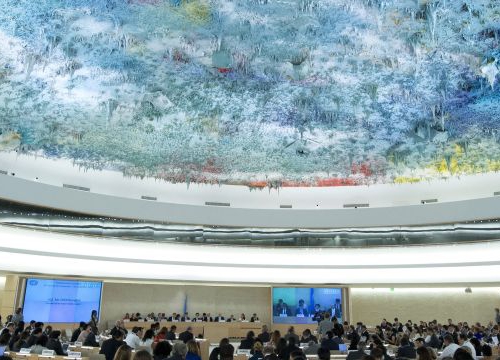Study on Emergining Good Practices from the UPR
Event


UN Photo
In the context of the upcoming 4th cycle of the Universal Periodic Review (UPR), this online event – co-organized with UPR Info, the Office of the UN High Commissioner for Human Rights (OHCHR), and GANHRI – will discuss a new study commissioned by OHCHR on emerging good practices based on seven countries and drawn from the first three cycles of the UPR.
The seven countries covered by the study are Denmark, Georgia, Kenya, Malaysia, Morocco, New Zealand, and Peru. The good practices highlighted in the study include the development of national coordination mechanisms for implementation, reporting and monitoring, human rights action plans, the development of methodologies and tools to follow up on recommendations, the benefits of mid-term reporting, the positive impact of technical cooperation and development assistance, and the integration of UPR recommendations in the context of the 2030 Agenda and the Sustainable Development Goals.
MODERATOR
- Mona M’Bikay, Executive Director, UPR Info
PANELISTS
- Nazhat Shameen Khan, President, UN Human Rights Council
- Gianni Magazzeni, Chief of the UPR Branch, OHCHR
- Miloon Kothari, Independent Expert on Human Rights and Social Policy, author of the study and Member of the Geneva Human Rights Platform Advisory Board
- Jerald Joseph, Commissioner, Human Rights Commission of Malaysia
- Akiyo Afouda, Human Rights Programme, IPU
VIDEO
Study on Emerging Good Practices from the Universal Periodic Review
This online event – co-organized with UPR Info, the Office of the UN High Commissioner for Human Rights (OHCHR), and GANHRI – discussed a new study commissioned by OHCHR on emerging good practices based on seven countries and drawn from the first three cycles of the UPR.






